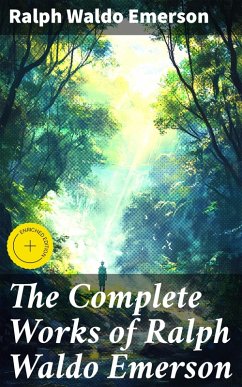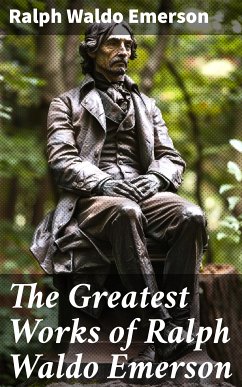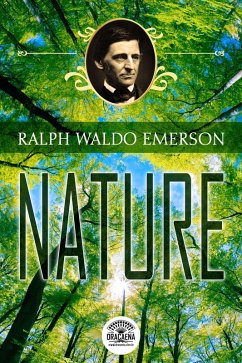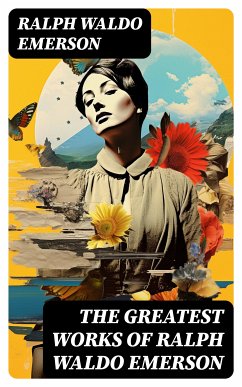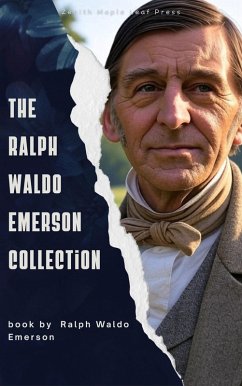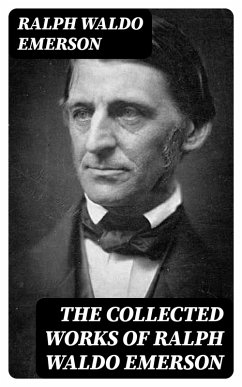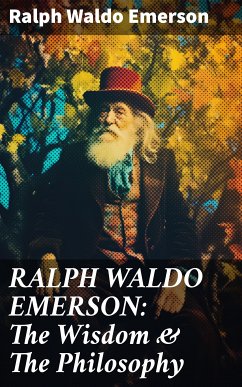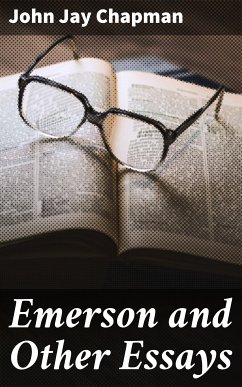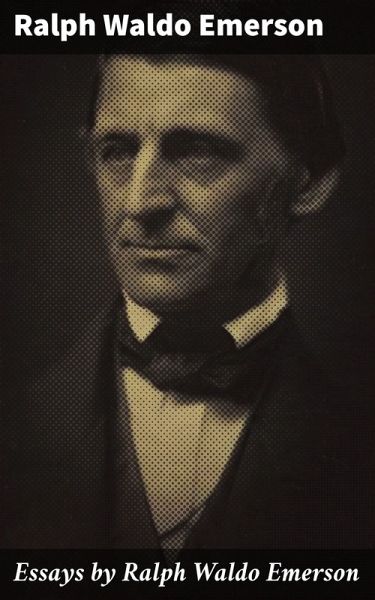
Essays by Ralph Waldo Emerson (eBook, ePUB)
Enriched edition. Embracing Individualism and Nature: A Transcendentalist Journey
Kommentar: Pemberton, Clarissa / Redaktion: Good Press; Turpin, Edna Henry Lee

PAYBACK Punkte
0 °P sammeln!
In "Essays," Ralph Waldo Emerson presents a profound exploration of individuality, transcendentalism, and the relationship between humanity and nature. Written in the early to mid-19th century, this collection is emblematic of a burgeoning American literary style seeking to break free from European conventions. Emerson's essays are characterized by their introspective nature, sweeping metaphors, and evocative prose, addressing themes such as self-reliance, spirituality, and the interconnectedness of all life. His assertive yet contemplative voice invites readers to engage deeply with their own...
In "Essays," Ralph Waldo Emerson presents a profound exploration of individuality, transcendentalism, and the relationship between humanity and nature. Written in the early to mid-19th century, this collection is emblematic of a burgeoning American literary style seeking to break free from European conventions. Emerson's essays are characterized by their introspective nature, sweeping metaphors, and evocative prose, addressing themes such as self-reliance, spirituality, and the interconnectedness of all life. His assertive yet contemplative voice invites readers to engage deeply with their own inner landscapes, encouraging both philosophical and practical reflections on everyday existence. Ralph Waldo Emerson, a leading figure of the American transcendentalist movement, articulated his philosophical ideas from personal experience and a deep appreciation for nature and individualism. Born in Boston in 1803, Emerson was influenced by his Unitarian upbringing and the intellectual circles of his time, including interactions with contemporaries like Thoreau and Fuller. These interactions and his own academic pursuits at Harvard allowed him to solidify his belief in the necessity of self-exploration and authenticity, themes that resonate throughout his essays. "Essays" is a vital read for anyone seeking inspiration and wisdom. Emerson's reflections encourage readers to question societal norms and embrace their true selves, making this collection not only a cornerstone of American literature but also a timeless call to cultivate personal integrity and connection with nature. Engaging with Emerson's essays will enrich your understanding of both the self and the universe. In this enriched edition, we have carefully created added value for your reading experience: - A comprehensive Introduction outlines these selected works' unifying features, themes, or stylistic evolutions. - The Author Biography highlights personal milestones and literary influences that shape the entire body of writing. - A Historical Context section situates the works in their broader era-social currents, cultural trends, and key events that underpin their creation. - A concise Synopsis (Selection) offers an accessible overview of the included texts, helping readers navigate plotlines and main ideas without revealing critical twists. - A unified Analysis examines recurring motifs and stylistic hallmarks across the collection, tying the stories together while spotlighting the different work's strengths. - Reflection questions inspire deeper contemplation of the author's overarching message, inviting readers to draw connections among different texts and relate them to modern contexts. - Lastly, our hand-picked Memorable Quotes distill pivotal lines and turning points, serving as touchstones for the collection's central themes.
Dieser Download kann aus rechtlichen Gründen nur mit Rechnungsadresse in A, B, BG, CY, CZ, D, DK, EW, E, FIN, F, GR, H, IRL, I, LT, L, LR, M, NL, PL, P, R, S, SLO, SK ausgeliefert werden.




